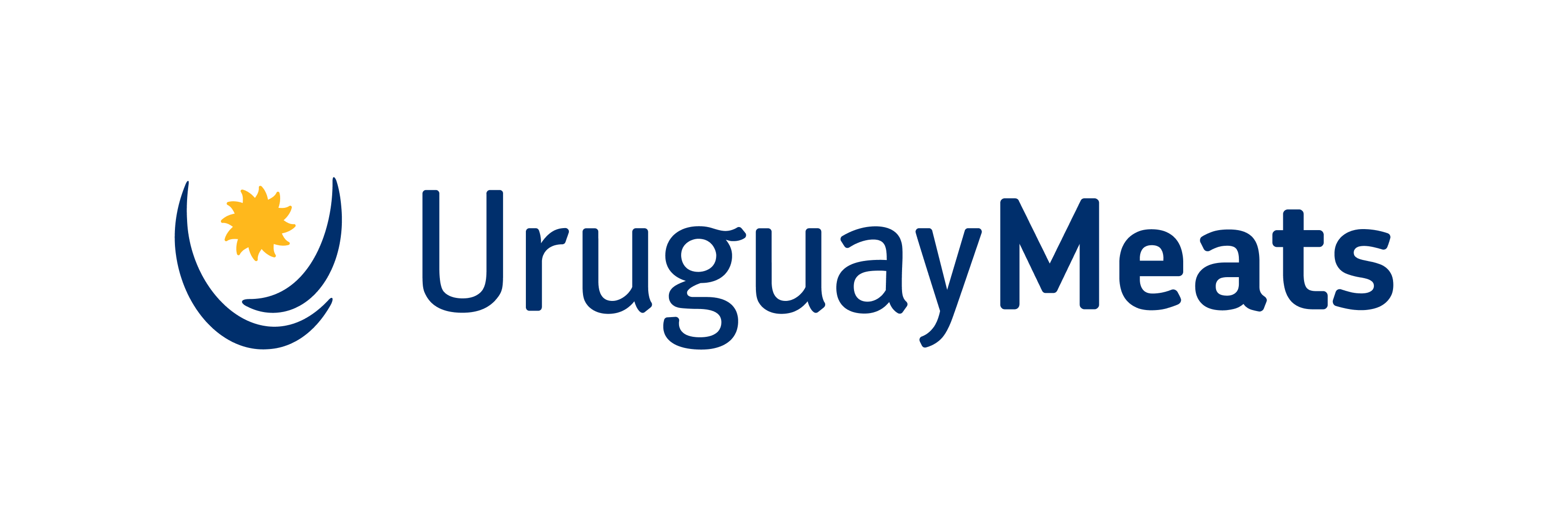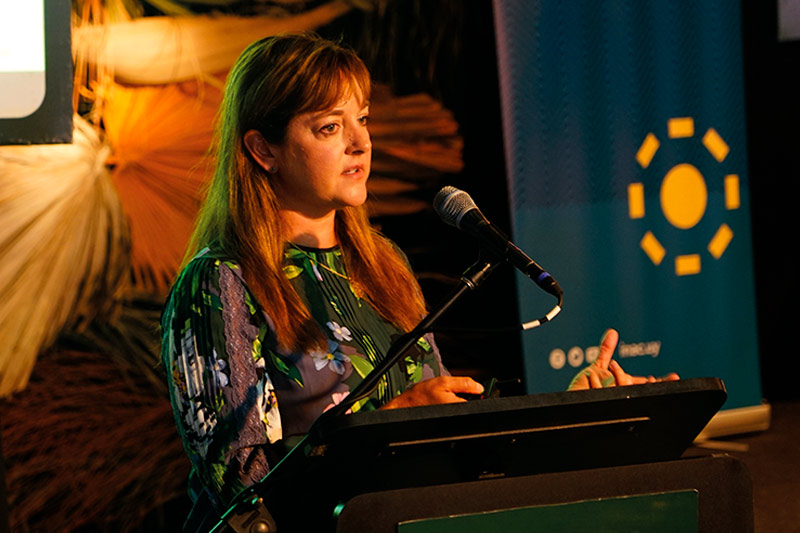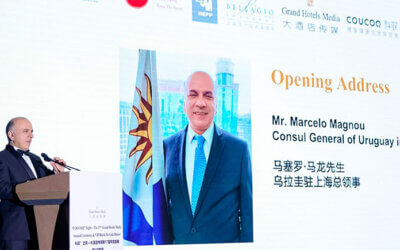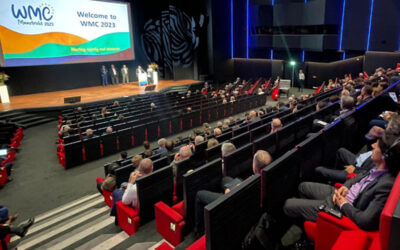Diana Rodgers is a U.S. nutritionist and meat advocate who has dedicated her work to providing resources to producers in several countries to advocate for livestock production and the consumption of meat.
Her understanding of an optimal diet and sustainable agriculture led her to visit 10 countries last year, advocating the importance of meat for the sake of sustainability. She has created an organization because she understands that everyone has the right to nutritious food.
INAC organized her busy visit to our country.
Lecture “Challenging the anti-meat narrative: the vital role of livestock for human and planetary health” at ExpoPrado in a room packed with more than 200 people. In her lecture, Rodgers argued that lab-raised meat does not contribute to food sovereignty. She added that she focuses on the nutrition of children and adolescents to ensure the population with no access to meat may get it and to have an impact on policy-makers.
In her view, especially concerning are the people that reduce meat consumption because of its price or because they consider it harmful to their health.
The nutritionist referred to campaigns in European countries that encourage skipping meat on certain days of the week in a population where 27% of the children come from low-income families. By recommending that, they are allowing them to go to their homes with food security gaps without offering them meat on Mondays and Fridays, Rodgers pointed out.
During her presentation, the professional incorporated data on calorie consumption in Uruguay and discussed the issue of ultra-processed foods. She also highlighted the figures of anemia among children in our country, where the incidence of anemia is 31%, a situation that may have a deleterious impact on brain development. This also happens with pregnant women, she said.
She also commented on two other dimensions of the issue; the relationship between meat and cancer, stating that it does not imply causation, emphasizing nutritional deficiencies, especially iron and vitamin B12, and the anti-meat narrative in relation to the causes of climate change.
Sixty percent of the land is not arable, that is the main message that needs to be conveyed to people, Rodgers said. People have to understand that animals transform what we cannot consume, he said.
The best use we can make of the grasslands is to raise animals, because they are in fact recyclers and there is no scientific evidence that stopping cattle production and eating meat is good for your health, and we know it is bad for the communities, especially for the children and women who need the meat, the professional finally concluded.
In addition to the lecture given at ExpoPrado, Rodgers had a busy agenda that included meetings with various national players such as parliament, the academia and the private sector, She visited cattle farms with INAC people, and had a chance to see their practices.
The conference “The importance of livestock and meat consumption in the development of society” was held at the Legislative Palace and was attended by authorities and members of the parliamentary commissions. Diana Rodgers presented the importance of meat in food and its narrative. Dr. Mario Moraes, Professor and Director of the Neonatology Academic Unit of the School of Medicine of the Pereira Rossell Hospital Center talked about “The Impact of Maternal Nutrition on the Newborn and its development”.
Rodgers also made a field visit to the department of Lavalleja, with INAC staff and Board member José Mesa; there she was able to appreciate the Uruguayan landscapes and talk to producers.
The farm visited is a breeder and is part of the Resilient Family Livestock program supported by the National Commission for Rural Development. The family farmer explained how they have implemented rotational grazing and stock adjustment to improve breeding indexes and increase production in a sustainable way, reducing the external inputs required.
Finally, there was a lecture called “Environmental, animal and human health: integrating different perspectives” at the School of Veterinary Medicine.
Diana Rodgers gave a presentation together with two Uruguayan speakers, consolidating an integrated vision of health in its three dimensions.
María Teresa Correa, Academic Assistant and Coordinator for the One Health Program at the School of Veterinary Medicine, presented the actions implemented by Uruguay to address “One Health”, with a focus on animal health.
On the other hand, Associate Professor of the School of Nutrition PhD Florencia Ceriani presented the nutrition and epidemiological situation in Uruguay. International guest speaker Diana Rodgers closed the meeting talking about human and environmental health, a presentation in which she challenged the anti-meat narrative.
Likewise, the U.S. expert visited the facilities of the Kiyu bull testing center of INIA and the Uruguayan Hereford Breeders Society; there she was received by the President of INIA, José Bonica and Elly Navajas, an INIA researcher.
The test center is an outreach center that conducts research on aspects related to the production, genetics, forage, and management of the Hereford breed. Diana was shown the trial that showed how the animals are capable of transmitting the best feed conversion efficiency trait to their offspring.




